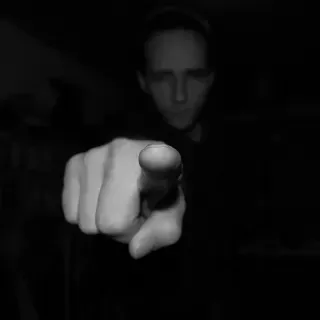
How Abusers Weaponize Blame and Shame to Trap Victims in Abusive Relationships
“You set a trap for me!” my (then) husband accused the day after he ran up over a curb when he was pulled over by police in the middle of the night. Our son had been in the passenger's seat; and my husband was clearly drunk. So, the local Police chief directed me to drive them both home, opting to let my husband off the hook as a favor to me.
“What are you talking about?” I furrowed my brows at the accusation.
“What are you talking about?” my husband mocked in a high-pitched voice. “You called the cops and arranged to have them arrest me for DUI! Do you realize what would happen if I got a second one? How much it would cost? I’d go to jail!”
I remember wishing they had taken him to jail that night, instead of sending him home with me. It would have given me a slight reprieve from the constant blame for every poor decision and unfortunate circumstance he wasn't willing to take accountability for himself.
Like his infidelity, a spinal surgery that temporarily disabled him, his choice to secretly drain his entire 401K, and every insult and abusive action he took against me, my ex-husband would claim that he wouldn’t have said or done what he had if it hadn’t been for me saying or doing something to cause it.
Sound familiar?
What’s worse is that I had been insulted, demeaned and diminished so often that I had internalized the blame for what went wrong in his life, early on in our twenty-five-year-long relationship; and I tolerated, excused, and enabled it exactly as my mother had taught me to do to endure her husband's controlling and abusive behavior.
You see, abusers work very hard to lure victims into a loving and trusting relationship, just to break them down over time. They often isolate their victim from friends and family, ensuring little or no interference in influencing the victim's perspectives and sense of self.
That’s when abusers blame and shame with accusations like:
“I wouldn’t have done that if you hadn’t . . .”
“How do you expect me to react after you . . .?”
“I’m sorry, but if you hadn’t . . .”
Over time, these blaming words become truth in the victim’s mind. Why wouldn’t they when their words and actions really do have a direct impact on how the abuser treats or mistreats them, thereby validating the abuser’s claims that the mistreatment and abuse is indeed the victim’s fault?
There is actually scientific evidence to support this.
Hearing something just 2-7 times compels our brain to accept those words as truth.
This asshole in our brain called the Reticular Activating system (RAS) then searches its memory database for every bit of evidence to support the repeated statement. Then, Walla! You now believe that statement as truth and feel terrible shame for being at fault for your own abuse.
So, really, it’s not your fault. It's your abuser's fault. And your brain's default. But the abuser’s isolation and restrictions on you prevent you from knowing this very pertinent information. In fact, they’re betting on keeping you in the dark—uneducated, uninfluenced, uninformed, and under their control.
How can a victim take back control over their life?
➡️By using the same tactic of repetition to retrain your brain out of the blame and shame the abuser is counting on to prevent you from leaving.
Here’s what to do:
💕Think of one accusation the abuser repeatedly claims about you.
💕Reframe that accusation into an opposite, more empowering belief.
💕Repeat that affirmation out loud (or in your head, if you’re unable to voice it) every morning when you wake up and every night before you go to sleep.
💕After 7 days, repeat these steps with a different statement that you’ve carried shame about.
Example #1
Blame: “If I hadn’t said or done [insert the words or actions here], then I wouldn’t
have been mistreated.”
Reframe: “I am free to express myself without being mistreated for it.”
Example #2
Blame: “How they reacted is my fault.”
Reframe: “How they reacted is a reflection of their own insecurities, which I can
neither control nor heal. That’s their responsibility.”
✨And remember, YOU ARE NOT AT FAULT FOR OTHER PEOPLE'S INABILITY TO CONTROL THEIR REACTIONS AND RESULTING BEHAVIORS. Nor are you alone.✨
➡️For more useful tips on healing from abusive relationships, please subscribe to my website and Substack to receive my weekly blog posts.
➡️💜If this resonates, I also encourage you to read my full story as told in the first, bestselling book in my memoir trilogy, Gasping for Air: The Stranglehold of Narcissistic Abuse—available on Amazon, Audible, Kindle, or anywhere else books are sold online.
💔😔And if you are in an abusive relationship,
please call 1-800-799-7233 for 24/7 support.


